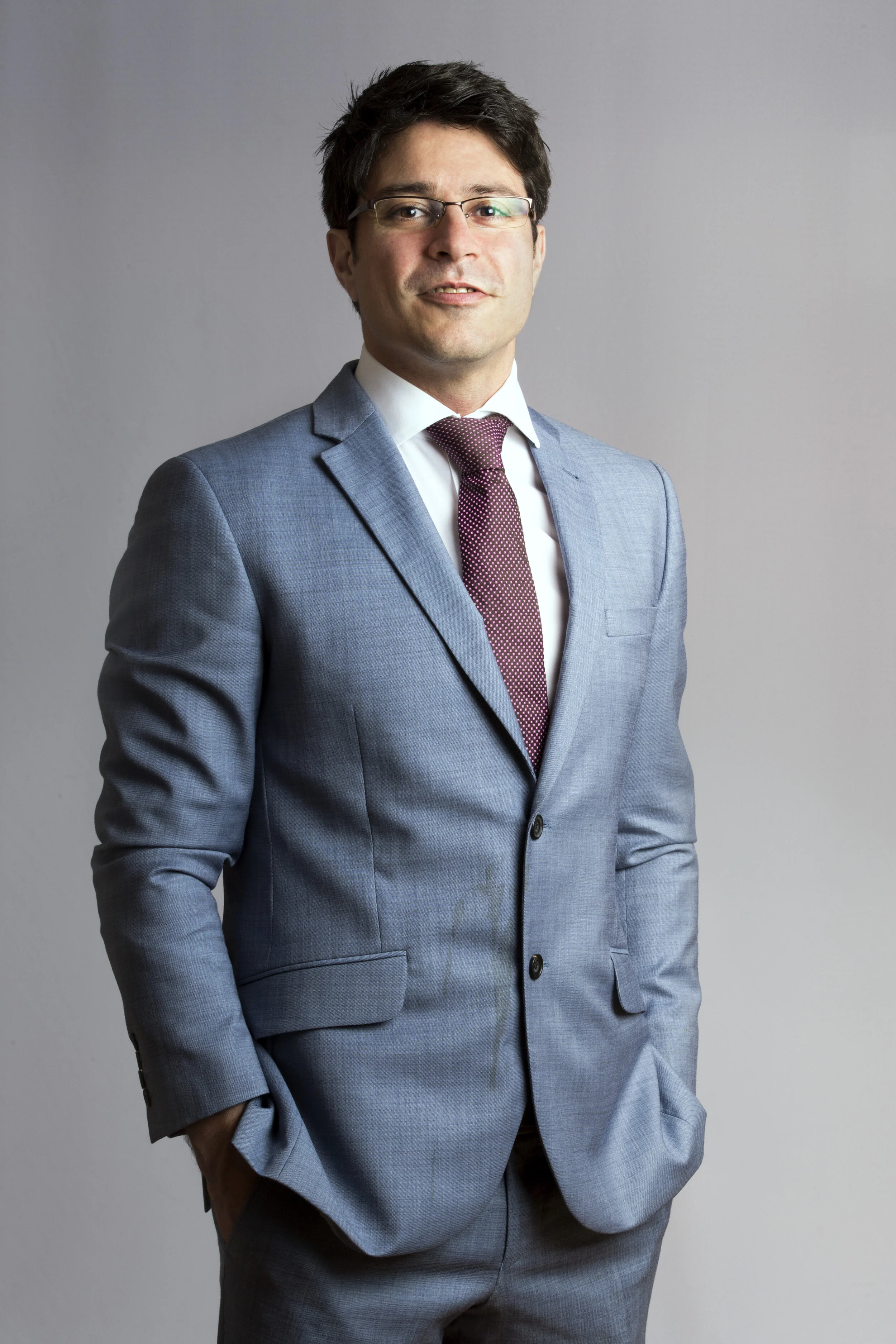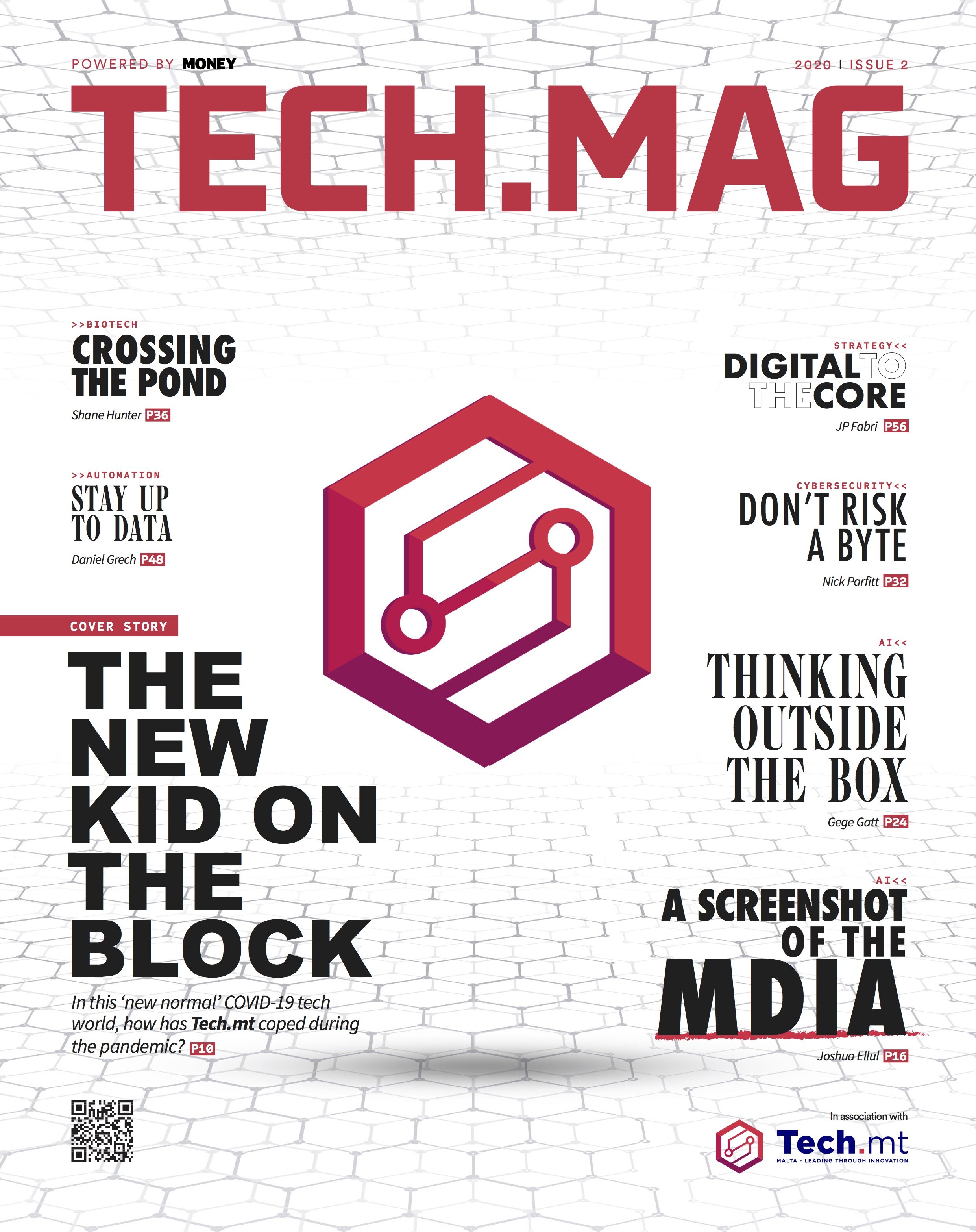A SCREENSHOT OF THE MDIA
Digital innovation can be viewed as a buzzword; however, Malta's vision in this sector is strong and forward-looking with the setting up of a dedicated Authority focusing on this element. MDIA chairman, Dr Joshua Ellul sat with Giselle Borg Olivier to delve into the function and need of such an Authority.
Dr Joshua Ellul is not your stereotypical chairman – he's young, charming, and is sporting trendy Bluetooth headphones around his neck when I meet him to discuss the work of the Malta Digital Innovation Authority (MDIA). The MDIA was set up in 2019 but has kept a relatively low profile, so I wanted to know what its purpose was.
"A great way to explain the MDIA would be to use the analogy of what the Transport Authority is to the car industry in Malta. The MDIA approves system auditors, which are like VRT stations that make sure your car is roadworthy. So, the MDIA similarly makes sure that software is ready to be released to the industry", explains Dr Ellul.
The MDIA currently focuses on Blockchain, Distributed Ledger Technology (DLT) and Artificial Intelligence (AI), and is opening to any safety-critical software, such as in power plants for example, or other places where there could be a critical loss if the software doesn't work correctly.
Dr Ellul explained that anyone could submit software to the MDIA-approved system auditors, who will then ensure that the software does what it's meant to do. The system auditors are the verifiers that are approved by the MDIA. There are currently five system auditors in Malta which are sufficient for the size of the market according to Dr Ellul. He admitted that they expected a larger market size due to the crypto regime that was being pushed locally, but since that died down, five system auditors suffice.
Dr Ellul told me that although the software has been submitted, none have been fully certified yet, although he expects that these will be certified within the next few months. "Software certification provides legal assurances. It's an audit where the authority has overlooked the whole process. You also have a forensic node which stores all the information that must do with the software, so if something ever goes wrong in the future, this can be investigated. We also have a technical administrator through our certification who can intervene at any point in time. If all else fails and the software doesn't work, and it states in a contract or other English-description document that the software should do something else, it's the English description that wins over the existing software. This is where we're providing legal certainty with certification which doesn't exist anywhere else yet," he said.
As he explains the process to me, I can't help but think that it sounds a bit Big Brother-like with this overarching authority declaring what is good and what is bad…
"A great way to explain the MDIA would be to use the analogy of what the Transport Authority is to the car industry in Malta”
Dr Ellul clarified: "You don't have to come to the MDIA. You can create software and release it; it's completely voluntary. If you want to build assurances with your consumers and your investors, then it would make sense for an independent, national Authority to be giving you that stamp of approval. It's about building a reputation where you might not be able to build that on your own. Although it's voluntary, it could be mandated in certain sectors, so, for example, the financial authority can mandate that they must undergo an audit and certification through the MFSA. In the future, it could be that the health authorities declare that any health-related software they use must undergo certain software auditing. The idea is that we promote innovation, and we want to support innovation by not requiring certification, but where authorities should require it, then they can do so."
What was the procedure before the MDIA was set up, I asked? "Many standard audit firms around the world do types of system audits following different standards concerning the audits that they implement and to different levels. What the MDIA has done is to create a nationally-recognised level of standard that should be applied. Because we're vetting the auditors (currently anyone can do an IT audit), we're giving a stamp of approval that these are credible auditors," said Dr Ellul. Dr Ellul explained that the MDIA framework uses international standards, and since they're the first in the world of their type, it's a bit difficult for them to promote themselves outside of Malta right now.
"In certain sectors, we're seeing that people are using any auditors, but that doesn't provide any assurances to the end-user and can sometimes prove to be detrimental because if the software fails it could result in people not having faith in audits. We want to instil a level of guarantee that any audits in Malta within this sector will have a high reputation."
"The EU has just released the Digital Finance Package, which talks about how cryptocurrencies and securities should be regulated in Europe. How can we make sure that these systems cannot be penetrated? There's a high aspect of resilience and security."
I wanted to know more about Malta's National AI strategy. Dr Ellul explained that there are several pillars that the strategy wants to enforce including a decent, educational system that would help people specialise in AI – the university and MCAST already have programmes in place, in this regard. Secondly is the wish to attract companies who have expertise in AI; however, Malta is still lagging on this front. Although he has met with companies who have moved to Malta, he believes that there is room for improvement. When it comes to developing the cutting edge of research and AI, Dr Ellul says that Malta is unlikely to be a leader in that field having to compete with the likes of China and the US that have been working on AI for decades. However, he does see potential in Malta becoming a leader as a testbed for AI, which is an agenda that the MDIA is pushing.
"AI will make a larger impact than blockchain in the short term"
Because AI is still considered to be new and unknown, Dr Ellul said that it's essential to differentiate between Artificial Narrow Intelligence – which is what is being worked on and Artificial General Intelligence – which is what is seen in films and doesn't exist in the real world. Therefore, a marketing and educational campaign is the first step to informing people about how AI is currently being used. The challenging part then follows as it concerns privacy issues, and these would need to be discussed publicly and not as a top-down approach.
As the subject veered onto blockchain and DLT, Dr Ellul remarked that Malta's ethos as 'the blockchain island' was geared towards companies operating in cryptocurrencies promoting Malta as a jurisdiction offering a regulated space. However, because no licenses have yet been issued, several companies left the island. Dr Ellul clarifies that many of these companies were start-ups, most of which would have ended up folding, so it wasn't detrimental to Malta that they left, because it's not beneficial to have many companies start and then go bust. Currently, some cryptocurrency-based companies are waiting for financial licenses to be issued. Once that happens, he believes that Malta may see a smaller influx of interest in the crypto space.
In terms of blockchain, Dr Ellul clarified that the software is still in its infancy and is not going to change the way that we do business overnight. Although it does offer the potential to remove some central authorities, he doesn't believe that it will lead to global decentralisation. In Malta, blockchain is being used for educational certifications and rental contracts, with other entities also considering its potential. Often the end-user won't be aware that they're on the blockchain, states Dr Ellul.
"If my rental contract is on the blockchain and my landlord changes the terms and conditions, then I can check that without needing to trust the Planning Authority or the landlord. People will probably not care that it's on the blockchain; technology becomes a success when we don't talk about it, but we use it in the background."
Although centralised systems will likely remain the norm and prevalent in daily life, the rise of decentralised systems will give control to people who want to keep centralised systems in check. This isn't something that will happen overnight. For example, digital currencies are likely to become more commonplace within 3-5 years, and mass adoption will follow suit. AI has been around since the 1960s and has gone through two hypes and 'winters' (a lull period), and is now going through another hype. AI is a success because it's already being used in various technologies without people realising that AI is present in their lives. Several projects are being developed in Malta now, and AI will likely be rolled out to manage features such as traffic lights shortly – "AI will make a larger impact than blockchain in the short term."
"We need to make sure that our AI is ethical and is human-centric. We're saying that we should regulate all AI, but perhaps what we should be regulating is the sectors that AI is used in. For example, if AI is used in insurance to determine whether you should get an insurance policy or not, the regulation needs to state that all policies issued must ensure there is no bias. We need to differentiate the sector from the technology because a lot of people are promoting AI regulation and I think it's a terrible decision" commented, Dr Ellul.
As the interview ends, I ask Dr Ellul about what's in the pipeline for MDIA amidst this pandemic. He replied that Covid-19 didn't affect the MDIA too much and they adopted a flexible working schedule, divulging that in a few weeks, the MDIA will be launching a new sandbox. "It's very demanding for start-up companies in the blockchain space to undergo a full audit and get full certification especially from a financial point of view, so several companies will be working towards full certification, in the sandbox. During the first two years, they'll just be undertaking audits on parts of their system, until they achieve full certification. The idea is to make assurances more cost-friendly for start-ups which will give them the ability to onboard users and get more investment." He also confirmed that the MDIA had added AI and critical systems into their remit; looking at government infrastructure, and anything where failure could cause significant damages, to start certifying what is considered safety-critical.
"Once the assurance framework is sound, the next path is harmonisation. Europe is pushing their idea, so we need to make sure that the software assurances that we're doing are relevant to Europe." Dr Ellul concluded by reiterating the importance of educating people about the MDIA's activity and explaining why it's essential for people and industries.





